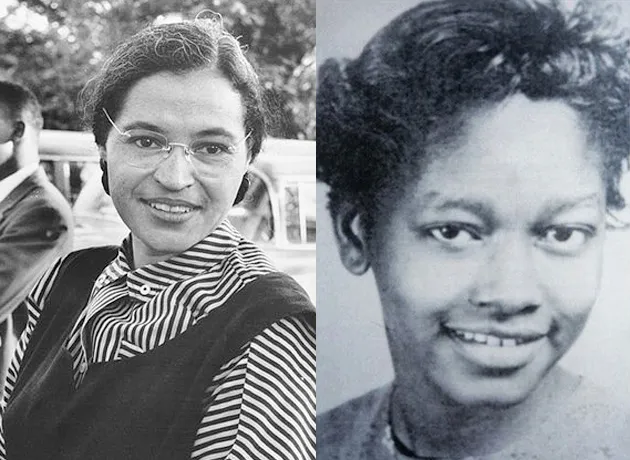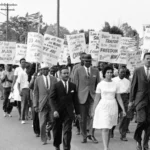In the intricate narrative of the civil rights movement, the names Claudette Colvin and Rosa Parks emerge as crucial threads, each contributing to the fabric of change. While Parks is widely celebrated, the story of Colvin remains an unsung anthem. This article explores the dynamics between Claudette Colvin and Rosa Parks, unraveling the complexities of their lives, similarities, differences, struggles, and enduring legacies.
1. Similarities:
- Acts of Defiance:
- Both Claudette Colvin and Rosa Parks refused to surrender their seats on segregated buses, challenging the oppressive racial norms of the time.
- Early Activism:
- Both women were engaged in civil rights activism from a young age. Claudette joined the NAACP Youth Council, and Parks was a secretary for the NAACP.
- Legal Challenges:
- Both faced legal consequences for their acts of defiance, with their cases contributing to the larger legal battles against segregation.
2. Differences:
- Timing of the Acts:
- Claudette Colvin’s refusal occurred on March 2, 1955, while Rosa Parks’ iconic act took place on December 1, 1955. The timing of Parks’ action coincided with the emerging momentum for the Montgomery Bus Boycott.
- Public Perception:
- Parks’ image was strategically chosen to represent the bus boycott due to her strong community standing and more conventional image, while Colvin, a teenager and unwed mother, faced more scrutiny and was deemed less suitable for the role.
- Impact on the Movement:
- Rosa Parks’ arrest became a catalyst for the Montgomery Bus Boycott, a pivotal moment in the civil rights movement. Colvin’s contribution, while significant, did not spark a widespread boycott at the time.
3. Struggles and Achievements:
- Claudette Colvin:
- Claudette faced ostracism in her community following her arrest, struggled with the aftermath of her legal battle, and later moved to New York, where her contributions were initially overlooked.
- Rosa Parks:
- Rosa Parks became an enduring symbol of the civil rights movement, receiving recognition and respect for her role in sparking the Montgomery Bus Boycott. She continued to contribute to civil rights causes throughout her life.
4. Legacy:
- Claudette Colvin:
- Claudette’s legacy lies in her early, courageous stand against segregation, her pivotal role in the Browder v. Gayle case, and her later advocacy for education.
- Rosa Parks:
- Rosa Parks is celebrated as the “Mother of the Civil Rights Movement.” Her legacy is synonymous with the success of the Montgomery Bus Boycott and her continued activism for justice.
Conclusion: The dynamics between Claudette Colvin and Rosa Parks are woven into the fabric of civil rights history, each contributing in unique ways. While Parks achieved wider recognition due to strategic decisions and the timing of her act, Colvin’s bravery and contributions are no less significant. Together, these two women exemplify the diversity of voices in the fight against racial injustice, proving that every individual, regardless of public recognition, plays a vital role in the pursuit of equality and justice. Their stories continue to resonate, urging us to revisit history with a more nuanced perspective.





